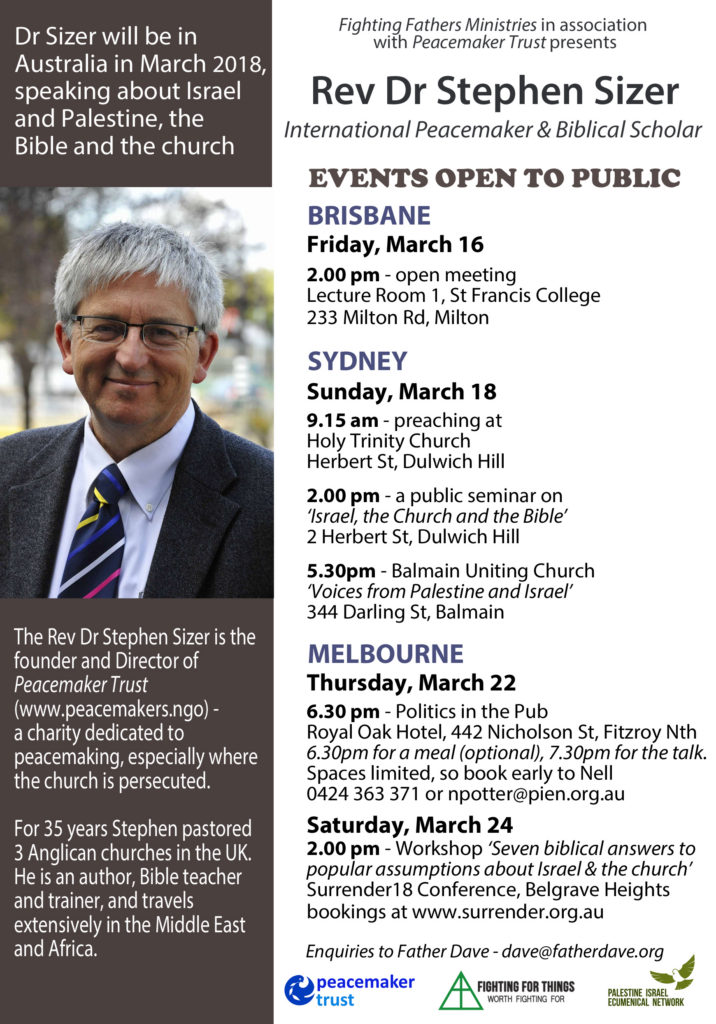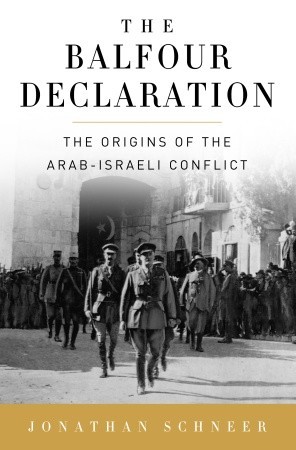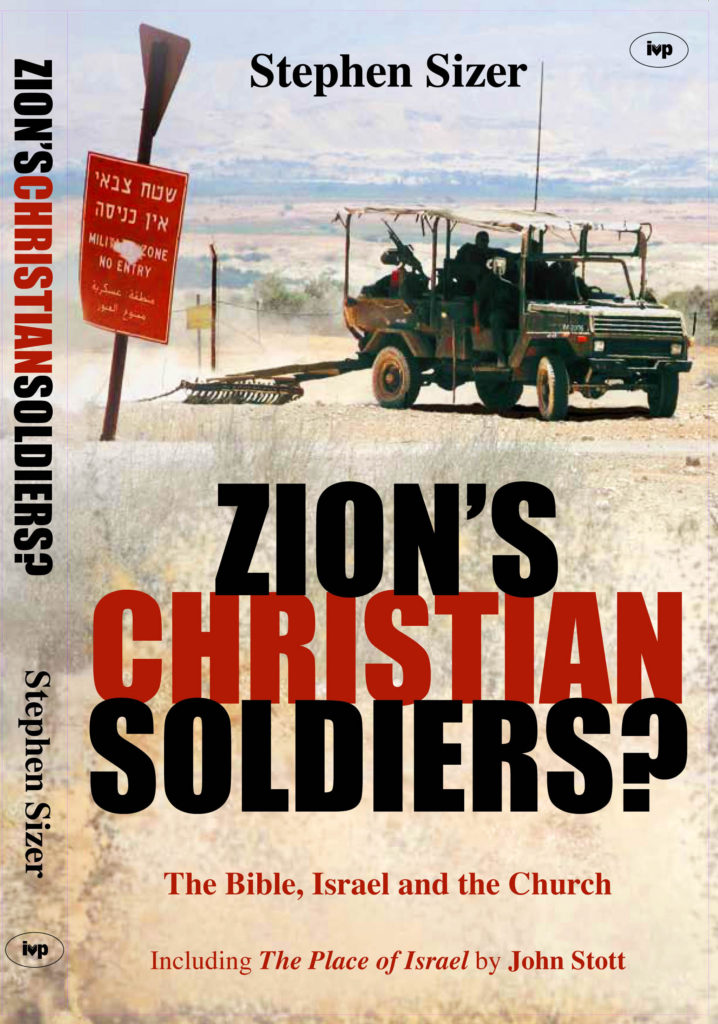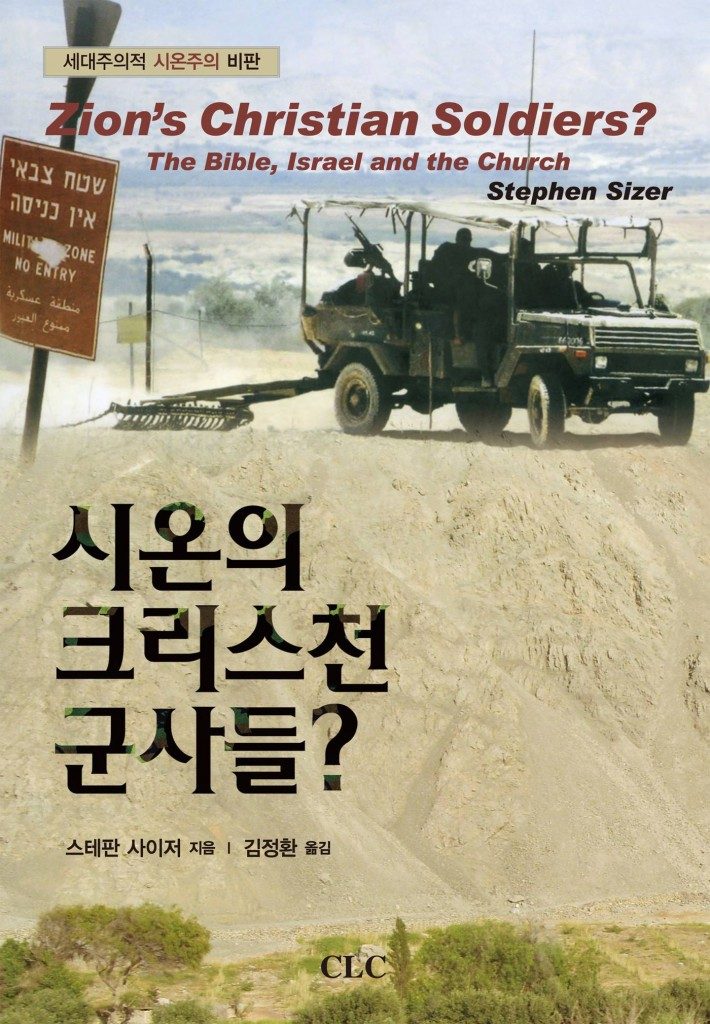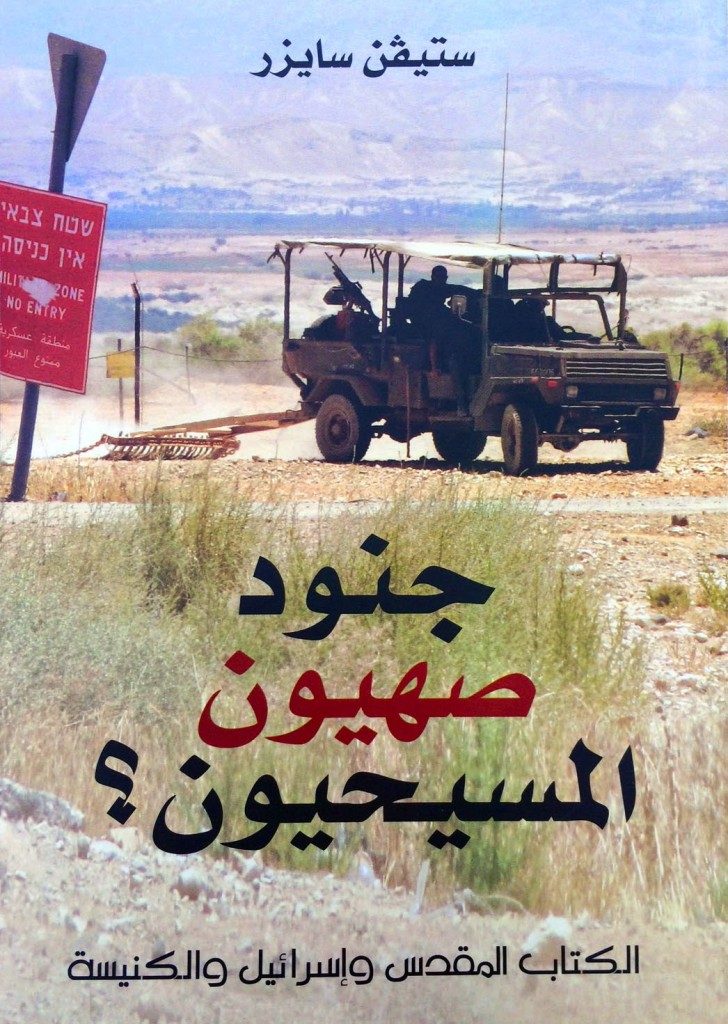Category Archives: Christian Zionism
What Are We to Make of Jesus Christ?
 “Now the story of Christ is simply a true myth: a myth working on us in the same way as the others, but with the tremendous difference that it really happened.” — C. S. Lewis
“Now the story of Christ is simply a true myth: a myth working on us in the same way as the others, but with the tremendous difference that it really happened.” — C. S. Lewis
‘What are we to make of Jesus Christ?’ This is a question, which has, in a sense, a frantically comic side. For the real question is not what are we to make of Christ, but what is He to make of us? The picture of a fly sitting deciding what it is going to make of an elephant has comic elements about it. But perhaps the questioner meant what are we to make of Him in the sense of ‘How are we to solve the historical problem set us by the recorded sayings and acts of this Man?’ This problem is to reconcile two things. On the one hand you have got the almost generally admitted depth and sanity of His moral teaching, which is not very seriously questioned, even by those who are opposed to Christianity. In fact, I find when I am arguing with very anti-God people that they rather make a point of saying, ‘I am entirely in favour of the moral teaching of Christianity’ — and there seems to be a general agreement that in the teaching of this Man and of His immediate followers, moral truth is exhibited at its purest and best. It is not sloppy idealism; it is full of wisdom and shrewdness. The whole thing is realistic, fresh to the highest degree, the product of a sane mind. That is one phenomenon.
Chosen? Reading the Bible amid the Israeli-Palestinian Conflict by Walter Brueggemann: A Review
 In his short but passionate little book, Chosen? Walter Brueggemann addresses some of the important questions regarding God’s purposes for Israel and the Church. For example, are contemporary Israeli citizens the descendants of the Israelites in the Bible whom God called chosen? Was the promise of land to Abraham permanent and irrevocable? What about others living in the promised land? Who are the Zionists, and what do they believe? The subtitle of the book tells us where he intends to look for answers, “Reading the Bible amid the Israeli-Palestinian Conflict.” His publisher, Westminster John Knox, promises,
In his short but passionate little book, Chosen? Walter Brueggemann addresses some of the important questions regarding God’s purposes for Israel and the Church. For example, are contemporary Israeli citizens the descendants of the Israelites in the Bible whom God called chosen? Was the promise of land to Abraham permanent and irrevocable? What about others living in the promised land? Who are the Zionists, and what do they believe? The subtitle of the book tells us where he intends to look for answers, “Reading the Bible amid the Israeli-Palestinian Conflict.” His publisher, Westminster John Knox, promises,
“The reader will get answers to their key questions about how to understand God’s promises to the biblical people often called Israel and the conflict between Israel and Palestine today.”
Chosen? comprises 59 pages of scripture commentary in four short chapters, a Q&A with the author, a glossary and 20-page study guide to facilitate group discussion around each of the chapters. The four chapters are:
- Reading the Bible amid the Israeli-Palestinian Conflict
- God’s Chosen People, Claim and Problem
- Holy Land?
- Zionism and Israel
The book also contains very helpful guidelines for respectful dialogue first published by the Presbyterian General Assembly in 1992. Significantly, the title includes a question mark. I added a question mark to the titles of two of my own books: Christian Zionism: Roadmap to Armageddon? and Zion’s Christian Soldiers? The Bible, Israel and the Church.[i] Walter is recognising, as I did, that views differ on whether the Jews are God’s chosen people, even though, unlike me, he personally concludes that they are.
The Balfour Declaration: The Origins of the Arab-Israeli Conflict by Jonathan Schneer
The late Tony Judt described this book as ‘the best modern history of the Balfour Declaration,’ and Eugene Rogan of Oxford sees it as ‘the most original exposition of the Balfour Declaration to date.’ It deserves a wide circulation as we live through the centenary of the Balfour Declaration on 2 November, 2017. The author, Jonathan Schneer, is an American historian who specialises in modern British history and teaches at Georgia Tech’s School of History, Technology, and Society.
This is an attempt simply to summarise the contents of the book with a number of quotations. If it were a review, my only criticism of the book would be that, in concentrating so much on the politics behind the Declaration, there is no discussion of the religious beliefs of key players like Lord Balfour and David Lloyd George which made them so open to supporting Zionism.
The Balfour Declaration (BD) needs to be understood in the context of World War I
By the time the BD was issued on 2 November 1917, Britain and Germany had been at war for over three years. Millions had been slaughtered in the trenches and neither side seemed to be winning. The Battle of the Somme had been fought between 1 July and 1 November, 1916, and Passchendale between July and November, 1917. The British government was seeking for ways to turn the tide in the war. Some in the cabinet believed that all their energies should be concentrated on the western front on the continent (‘the westerners’), while others believed that new initiatives in the Middle East could break the deadlock and give Britain the advantage (‘the easterners’). After the fall of the Asquith government in December 1916, Lloyd George, an easterner, became Prime Minister.
Zion’s Christian Soldiers
Holy War: The Christian Jihad
Following the tragedy of 9/11 and the destruction of the World Trade Centre in New York, multi-bestselling author and Christian journalist Anne Coulter, wrote,
“We don’t need long investigations of the forensic evidence to determine with scientific accuracy the person or persons who ordered this specific attack. We don’t need an “international coalition.” We don’t need a study on “terrorism.” … We know who the homicidal maniacs are. They are the ones cheering and dancing right now. We should invade their countries, kill their leaders and convert them to Christianity. We weren’t punctilious about locating and punishing only Hitler and his top officers. We carpet-bombed German cities; we killed civilians. That’s war. And this is war.”[3]
More recently, at the July 19th, 2006, inaugural event for Christians United for Israel, in Washington DC, after recorded greetings from the then President, George W. Bush, and in the presence of four US Senators as well as the Israeli ambassador to the US, Pastor John Hagee, stated :
Ambassadors Needed
 Heartened by the recent historic meeting between Prime Minister David Cameron and Iranian President Hassan Rouhani, at the United Nations, signaling a long-overdue thawing of Anglo-Iranian relations, I was delighted to attend the New Horizons interfaith conference in Tehran last week, as a member of a UK delegation.
Heartened by the recent historic meeting between Prime Minister David Cameron and Iranian President Hassan Rouhani, at the United Nations, signaling a long-overdue thawing of Anglo-Iranian relations, I was delighted to attend the New Horizons interfaith conference in Tehran last week, as a member of a UK delegation.
The conference addressed issues where faith and politics intersect in the Middle East such as Israel’s war on Gaza, Islamophobia in the West as well as the rise of ISIS and those sponsoring extremism.
“There is no teleology in western society, no guiding morality, only an obsession with materialism,” argued organizer Arash Darya-Bandari. “We believe it is necessary to control the negative tendencies in culture, such as pornography, alcohol, drugs, prostitution, to strive towards a more moral and justice society.”
One of the contributors, Eric Walberg wrote, “Contrary to the shrill cries in the western media that the conference was anti-Semitic, it was unique in my experience in addressing Zionism and US imperialism forthrightly and intelligently, without a hint of racism. The issue of anti-Semitism was addressed and dismissed, as “There is no issue with Jewish people or the Jewish religion,” explained Darya-Bandari, “but rather with Zionism, that secular distortion of Judaism that itself is racist, and has been used as a pretext to dispossess and kill Palestinians.”
He went on to report, “The conference issued a resolution condemning ISIS, Zionism, US unconditional support of Israel, Islamophobia, and calling for activism locally to boycott Israeli goods and to promote understanding between the West and the Muslim world, and to fight sectarianism. “This was a great opportunity to meet anti-imperialist activists from around the world, to bring Russians, Poles, western Europeans, North Americans together with Iranians and other Muslims, both Sunni and Shia, in a forum without sectarianism, truly supporting peace and understanding,” said delegate Mateusz Piskorski, director of the European Centre of Geopolitical Analysis in Warsaw and former MP in the Polish Sejm.”
I was invited to contribute to the opening ceremony and present a biblical perspective on Jihad and in particular, a Christian refutation of the Islamic State (IS). Later in the conference I was asked to present a paper on the impact of the Israel Lobby in the UK, especially in parliament and in the media, ahead of the publication of my new book on the subject.
“We are therefore Christ’s ambassadors, as though God were making his appeal through us. We implore you on Christ’s behalf: Be reconciled to God.” (2 Corinthians 5:20)
Ambassadors, of necessity serve in foreign countries, where perspectives may be different and at times even hostile to one’s own. But given the dire consequences of any breakdown in relations between countries, dialogue and diplomacy are always to be preferred over war and strife.
In the journal Diplomat, Michael Binyon asks,
“Are Christian church leaders becoming the world’s most active peacemakers? Only a week after President Peres of Israel and the Palestinian President Mahmoud Abbas accepted the Pope’s invitation to pray together with him in Rome, the Archbishop of Canterbury made a dramatic flight to Nigeria to pray with President Goodluck Jonathan and encourage him to make every effort to find the schoolgirls kidnapped by the terrorist organisation Boko Haram.
The Archbishop’s impromptu trip came hard on the heels of a visit to Pakistan, where he visited a small embattled Christian community and praised their efforts to forge closer links with the wider Muslim community, despite regular attacks by militants, the threats of mob violence and the increasing use of the notorious blasphemy laws to force Christians from their land and property…
Peacemaking and reconciliation – within the Anglican Church and between the world’s main faith groups – were the declared priority for Justin Welby from the moment he became Archbishop. He is well qualified for the role. As an oil executive who visited Nigeria often before his ordination, he has seen at first-hand the conflict raging between Christians and Muslims in Central Nigeria that is now taking a deadly toll. As a former head of Coventry Cathedral’s Centre for Reconciliation, he has himself conducted delicate negotiations between militant groups in an effort to free hostages, often risking his own life.”
A walk through the deserted US embassy in Tehran last week was a poignant reminder of how a failure to pursue diplomacy has fueled not only decades of missed opportunities but also perpetuated misunderstanding and animosity between our countries.
Ironically, the leaders in Jesus day, tried to dictate whom he could and could not meet with, criticizing him for eating with “tax collectors and sinners”. Clearly they considered his actions “conduct unbecoming” a rabbi. Thankfully for us he did not listen to them.
Critics of conferences such as New Horizons should think more carefully about how their inflammatory words will negatively impact on their own communities in Iran.
They would be better served following the examples set by our Prime Minister, the Pope and the Archbishop who, as true ambassadors, are working for peace and reconciliation.
Christian Jihad: A Biblical Response to the Islamic State
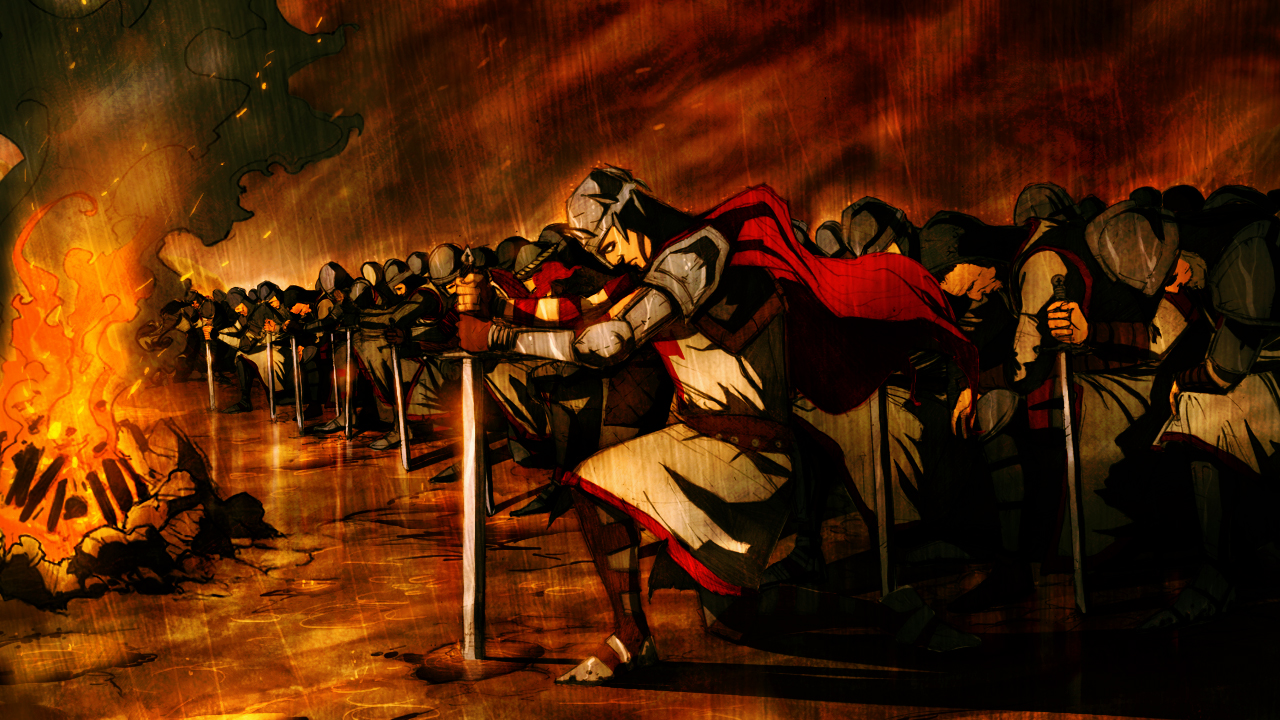 I hope that we would all agree ISIS is no more representative of Islam than Zionism is of Judaism, or the Crusades and Inquisition are of Christianity. But the reality is ISIS has attracted at least 3,000 young idealistic Muslims from Europe. And apocalyptic Christian Zionists are the dominant supporters of Israel’s colonialist expansionist agenda in Palestine.
I hope that we would all agree ISIS is no more representative of Islam than Zionism is of Judaism, or the Crusades and Inquisition are of Christianity. But the reality is ISIS has attracted at least 3,000 young idealistic Muslims from Europe. And apocalyptic Christian Zionists are the dominant supporters of Israel’s colonialist expansionist agenda in Palestine.
ISIS has made their vision for the world very clear. Carl Medearis says,
“We know what it is – evil personified. They have morphed out of Al Qaeda who were ironically too liberal for their most radical Islamic interpretations, namely that there should be a new national Muslim identity – a Caliphate. They have chosen Iraq and al-Sham (the Levant) as the territory from which this new “state” will emerge.
ISIS has brutally killed 1000’s, mostly non-Sunnis, in this quest for power. Ethnic Christians and a small people-group called Yazidis have found themselves in evil’s path, but so have the armies of Syria (both the national army and the various rebel groups), Iraq and even Lebanon. It seems anyone who isn’t willing to lay down their “flag” and join the newly self-appointed ISIS Caliphate is deemed a traitor and deserves to die.”[1]
Zion’s Christian Soldiers in Arabic
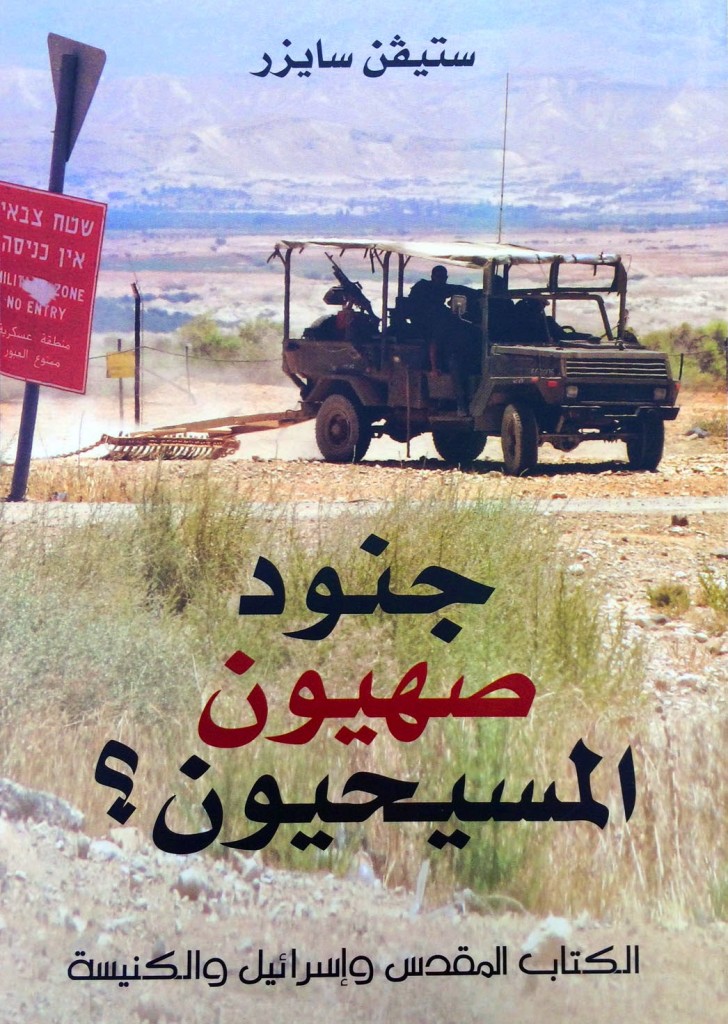
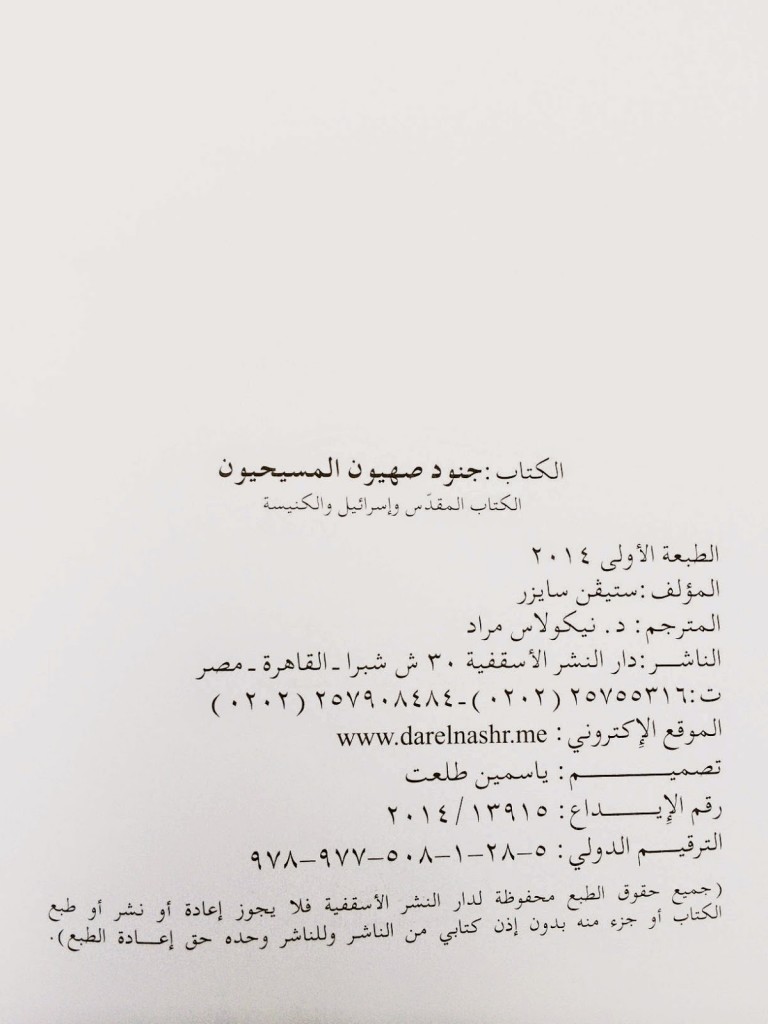
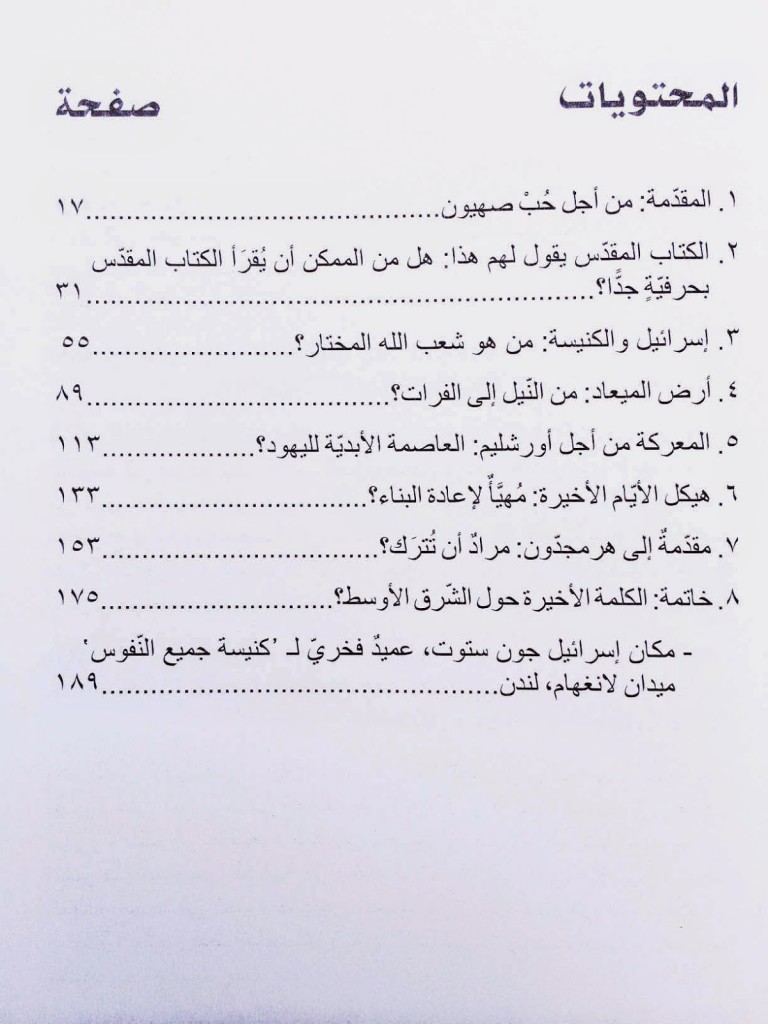
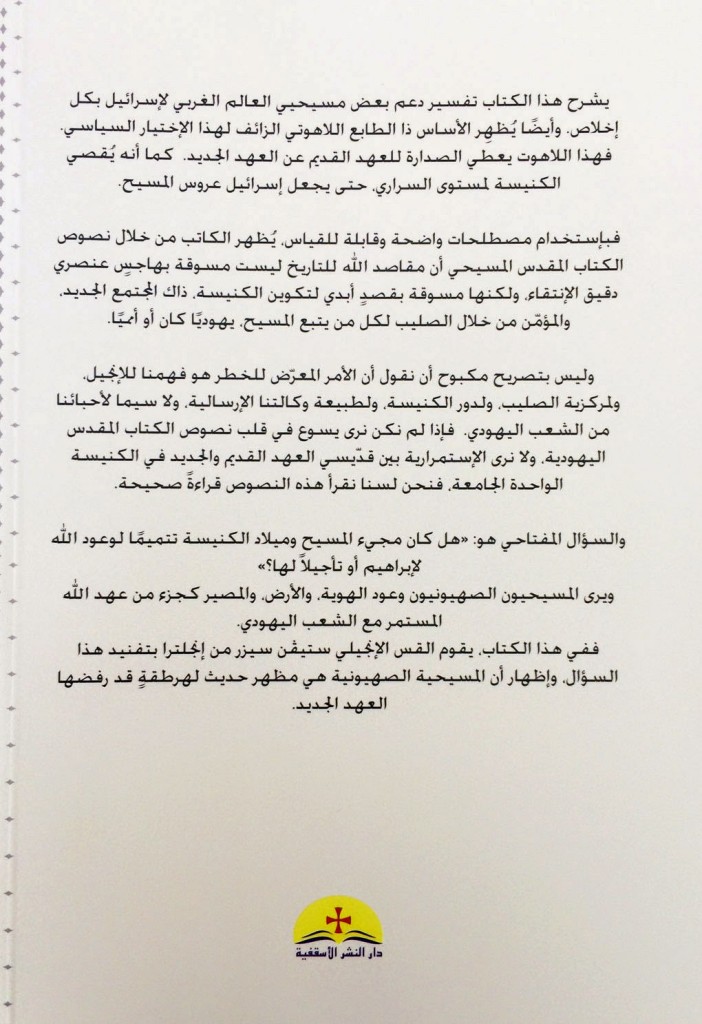 Zion’s Christian Soldiers is now available in Arabic and costs £8.95 plus £2.75 postage in the UK and £4.75 internationally. Order via PayPal
Zion’s Christian Soldiers is now available in Arabic and costs £8.95 plus £2.75 postage in the UK and £4.75 internationally. Order via PayPal
Der Christliche Jihadist
Der Christliche Jihadist. Im Zeichen des Kreuzes im evangelikalen Christentum: Die Perspektive eines christlichen Jihadisten
A German translation of my presentation, The Christian Jihadist
Download a pdf version Der christliche Jihadist
See also Sieben biblische Antworten auf populäre zionistische Thesen
Die theologischen und ideologischen Wurzeln der Balfour-Deklaration
Sieben biblische Antworten auf populäre zionistische Thesen

